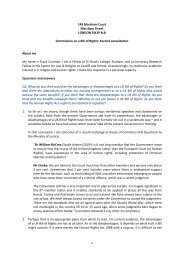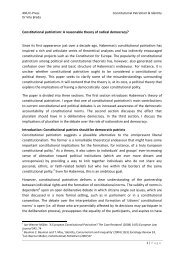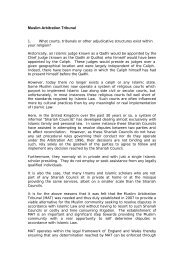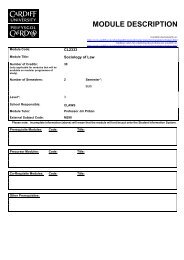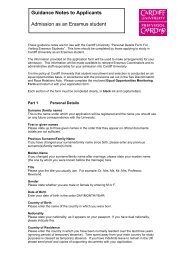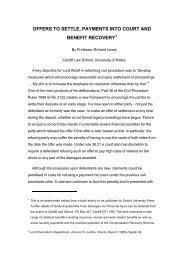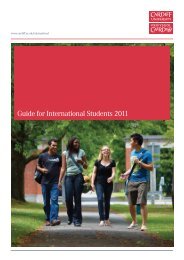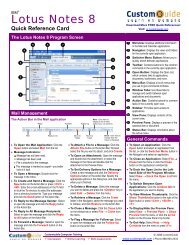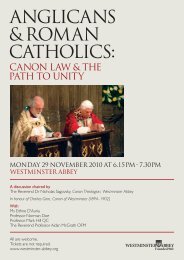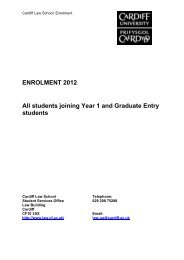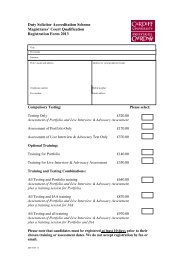MODULE DESCRIPTION - Cardiff Law School
MODULE DESCRIPTION - Cardiff Law School
MODULE DESCRIPTION - Cardiff Law School
You also want an ePaper? Increase the reach of your titles
YUMPU automatically turns print PDFs into web optimized ePapers that Google loves.
Version 3<br />
METHOD(S) OF SUMMATIVE ASSESSMENT:<br />
The methods of assessment of a module should be completed in the following table. Notes of guidance for completion of<br />
the table are provided below.<br />
Type % contribution Title Duration (if app)<br />
EXSP 100% Trusts [20] examination 2 hours<br />
Notes of Guidance:<br />
1. All assessments which contribute to the module mark must be separately identified in the above table. Continue<br />
on a separate piece of paper (if necessary) and attach it to the completed module description.<br />
2. Type EXAU Examination Autumn Semester<br />
EXSP Examination Spring Semester<br />
EXSU Examination Summer Period<br />
EXPG Examination held outside Autumn, Spring and Summer periods<br />
PCEX Practical Examination held within the school and organised by the school<br />
CT<br />
Class Test<br />
CW<br />
Coursework<br />
LW<br />
Laboratory work<br />
PW<br />
Project work<br />
FW<br />
Fieldwork<br />
A module may have more than one assessment component of the same type e.g. if a module is assessed by two<br />
essays, both essays would need to be listed with the type CW.<br />
3. Percentage contribution: The contribution of the assessment component towards the calculation of the<br />
overall module mark.<br />
4. Title: A descriptor of the assessment component e.g. examination paper title.<br />
5. Duration: The duration of an examination or class test.<br />
SYLLABUS CONTENT:<br />
All areas of the <strong>Law</strong> Society's ``Foundations of Equity and the <strong>Law</strong> of Trusts'' are covered.<br />
Detailed coverage will include:<br />
− the types of trust<br />
− express trusts, and the requirements for their validity (including constitution, certainty and formalities)<br />
− charitable trusts<br />
− implied and resulting trusts<br />
− constructive trusts<br />
− the powers and duties of trustees<br />
− the remedies for breach of trust (including tracing).<br />
This is mostly a case-based course, although there are important statutory provisions.<br />
INDICATIVE READING LIST:<br />
For 2010-11 the principal recommended textbook is one of the following:<br />
− Hanbury & Martin, Modern Equity (18th ed., Sweet and Maxwell, 2009)<br />
− Parker & Mellows, The Modern <strong>Law</strong> of Trusts (9th ed., Sweet & Maxwell, 2008) £30.00-<br />
− Hayton & Marshall, Commentary & Cases on the <strong>Law</strong> of Trusts and Equitable Remedies (12 th ed., Sweet &<br />
Maxwell, 2005)<br />
CATALOGUE ENTRY:<br />
The course is designed to provide exemption in respect of the <strong>Law</strong> Society's ‘Foundations of Equity and the <strong>Law</strong> of<br />
Trusts’. Because the course is based around the legal concept of the trust, coverage is not restricted to any particular<br />
enterprise or activity, but encompasses a wide and disparate range.<br />
PM005<br />
Page 4 of 4



